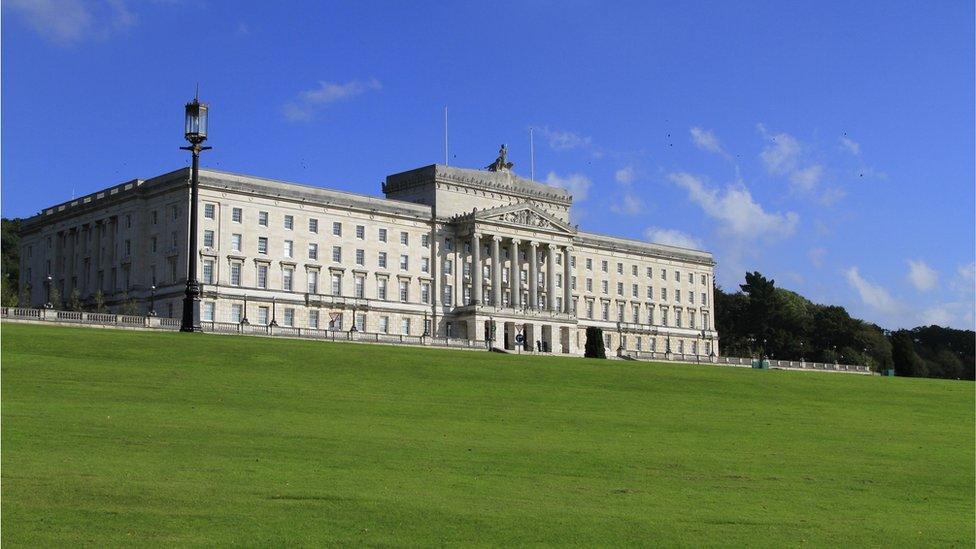MLA appeal over backstop in letter to Tusk
- Published
- comments

More than half of the members of the Northern Ireland Assembly have signed a letter to the EU Council President Donald Tusk expressing their continuing support for the Brexit backstop.
The backstop is intended to guarantee there will be no hard border in Ireland after the UK leaves the EU.
It has been criticised by Prime Minister Boris Johnson as anti-democratic.
It has also been strongly opposed by the DUP.
Northern Ireland's largest party, which props up the Conservative government, argues that it would effectively create a border between Northern Ireland and the rest of the UK.
The backstop, part of the withdrawal agreement negotiated by former prime minster Theresa May, would see Northern Ireland staying aligned to some rules of the EU single market.
It would also involve a temporary single customs territory, effectively keeping the whole of the UK in the EU customs union.
These arrangements would apply unless and until both the EU and UK agreed they were no longer necessary.
Backstop 'necessary'
The MLAs - drawn from Sinn Féin, the SDLP, Alliance and the Northern Ireland Greens - have told Mr Tusk they regard a legally operable guarantee to protect the Good Friday Agreement, maintain north-south co-operation and prevent a return to physical infrastructure on the Northern Ireland border as "necessary to preserve the progress that we have made".
The assembly members, whose parties campaigned to remain in the EU in the 2016 referendum, said they "trust that the approach adopted by the European Institutions to defend all that we have achieved will continue in the weeks ahead".
'Irresponsible'
DUP MP Sir Jeffrey Donaldson criticised those who signed the letter, saying they "want to foist a deal on Northern Ireland which every unionist party opposes" and questioned their commitment to a shared future.
"Those who pedal scare stories about barbed wire and soldiers on checkpoints are being irresponsible," he said.
"Neither London nor Dublin have any plans to go back to the borders of the 70s and 80s, even in a no-deal scenario."
- Published16 October 2019
